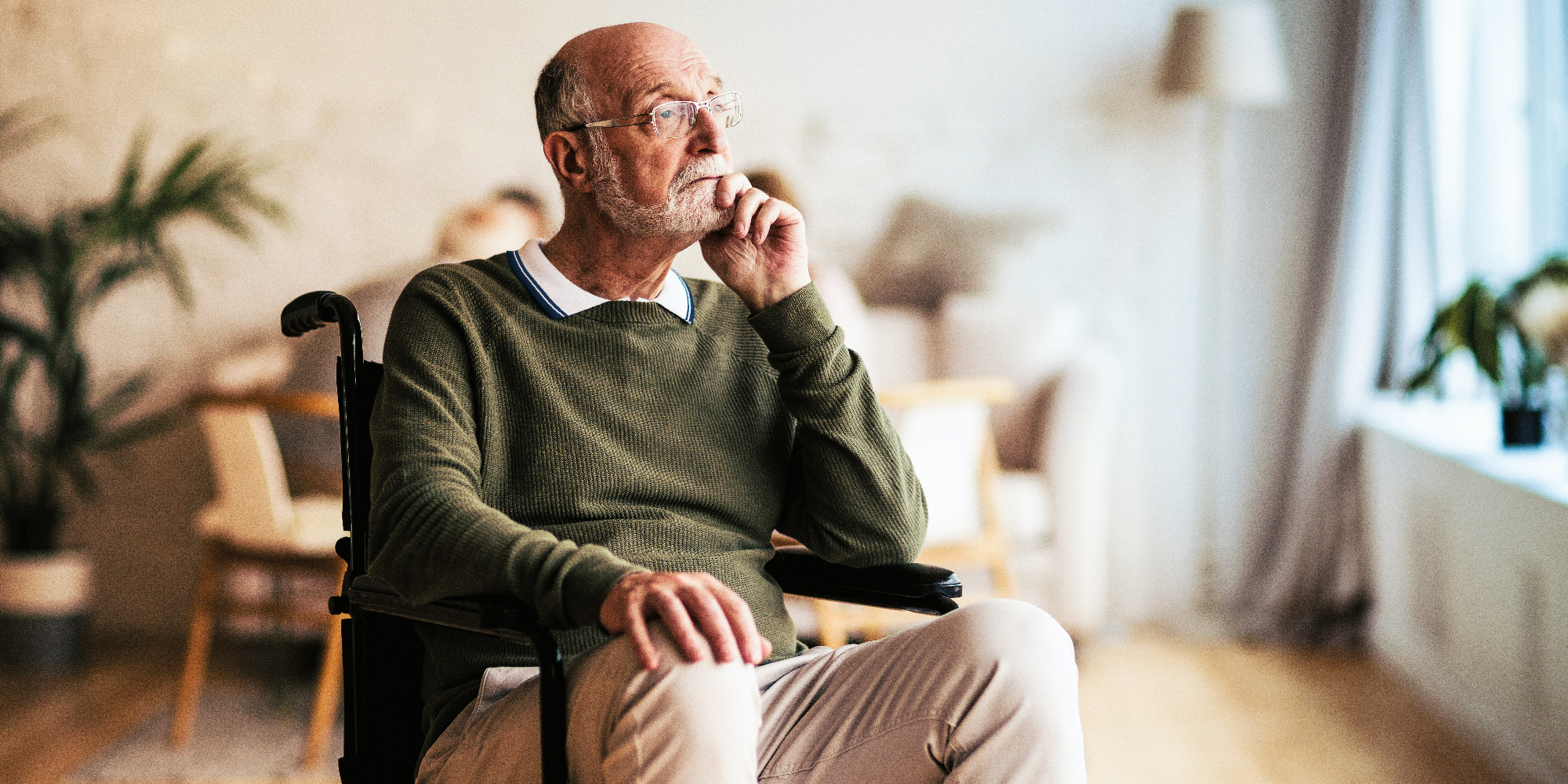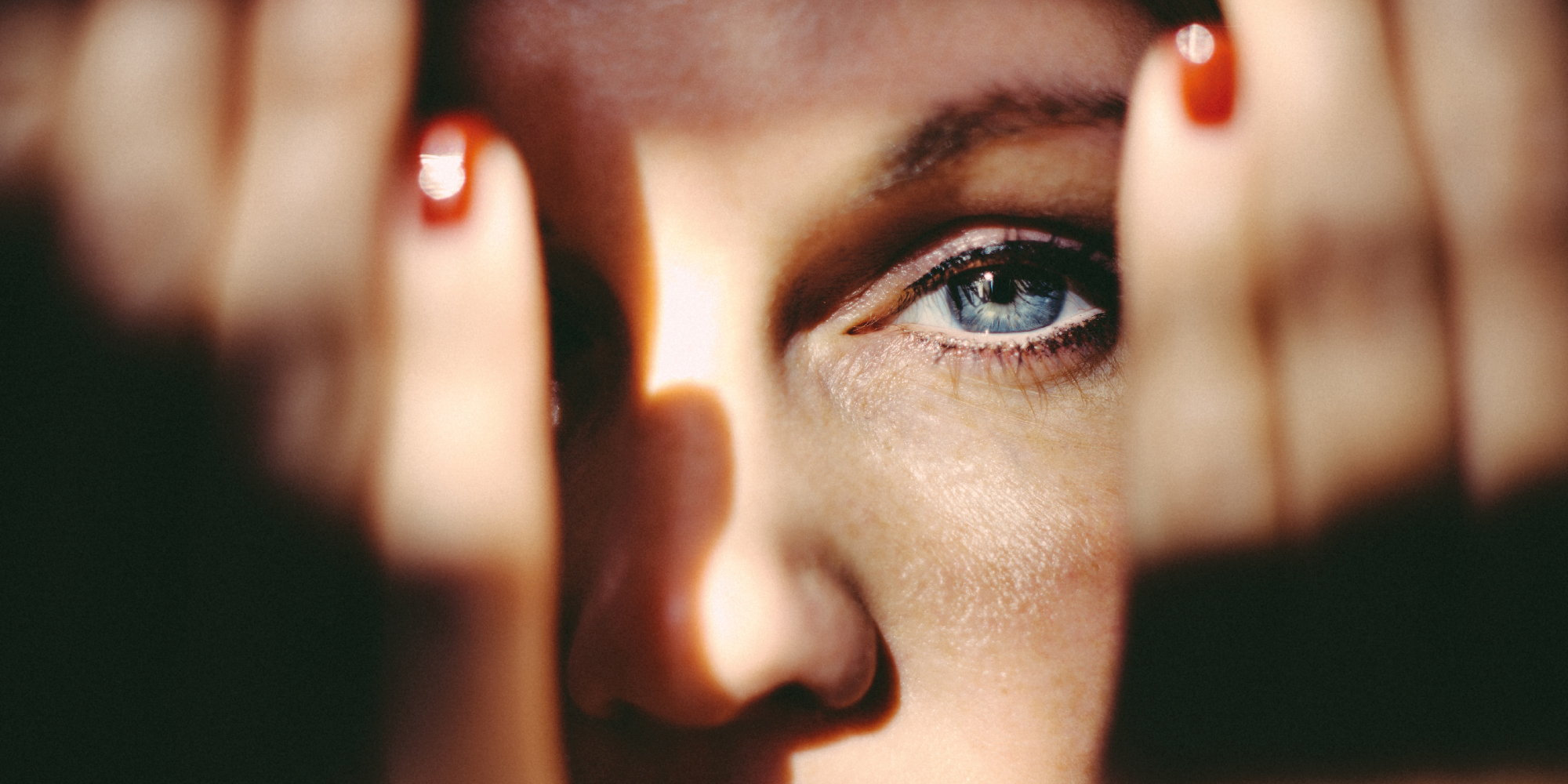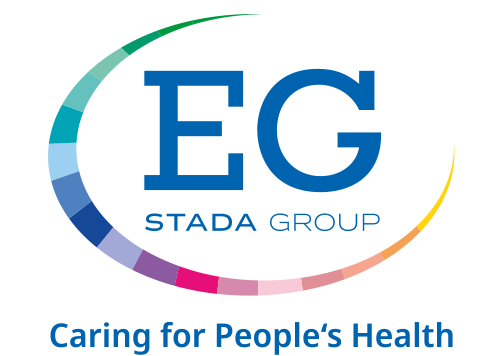BELGIUM STADA HEALTH REPORT
HIGHLIGHTS - 2024
BELGIANS ARE THE MOST SATISFIED WITH THE LOCAL HEALTHCARE SYSTEM,
BUT THEIR MENTAL HEALTH IS WORSE THAN AVERAGE AND DECLINING

Satisfaction with the healthcare system
Well over four in five adults in Belgium (85%) are satisfied with the country’s healthcare system – 26% very satisfied, and 59% quite satisfied. This ranks Belgium as the most satisfied nation in Europe in this regard. The European average is 56% satisfaction.
Just one in ten (10%) in Belgium are quite dissatisfied, and a mere 3% very dissatisfied. Just 2% could not say.
Satisfaction levels stayed much the same from the 2023 Health Report findings.
Strong satisfaction is slightly more prevalent in Belgian men (30%) compared to women (22%), reflected in overall satisfaction being 87% with men and 83% with women.
By age group, satisfaction peaks in the youngest 18-24 (90%) and oldest 70+ (92%) age group, but is 80% or higher in all age groups.
Of those 85% generally satisfied with the Belgian healthcare system, two in three (67% vs 56% average) cite availability of advice and care from pharmacist or doctor. Older citizens – 74% in the 55-69 age group, and 82% aged 70-plus – are satisfied in this regard.
A similar proportion (64% vs average 56%) cite their ability to get hold of medication when they need it, with 59% happy about the cost or reimbursement level. Again, these values are particularly strong in the older age groups (74% for medicines availability in 70 and over group).
Around two in five (41% vs 41% average) cite access to preventive services. On all these points, the sexes are in general alignment.
When asked: Please tell us why you are not satisfied with the public healthcare system in your country?’) , in Belgium the most commonly cited reason was an inability to get an appointment (57% vs 54% European average). Just under two in five respondents in Belgium (37%) say they or a close one have experienced a poor standard of care (vs 47% average).
Around half also voice concerns over trust in healthcare policymakers (46%) and one in four (24%) in the sustainability of the healthcare industry.

Would Belgian citizens be willing to pay
for a better quality of healthcare?
A mere three in 10 Belgian adults (30%) declared themselves willing to pay more for a better service. This is significantly below the 42% European average. The youngest 18-24 age group was most open to contributing more (40%), with the 45-65 group most reluctant (24%).
Just 13% overall (vs 21% average) would be prepared to pay more in taxes and direct contributions to the healthcare system. Men (16%) were more open than women (11%).
Another 17% would be prepared to pay more out of my pocket (e.g. private insurance or individual service (European average 21%).
One in three Belgians (34%) would not pay more, though they could afford to – far more than the one in five (21%) of all Europeans on average.
Just over one in four (27% vs 31% average) say they simply cannot pay more – women (29%) showed more resistance than men (24%). Notably, the youngest 18-24 (21%) and eldest 70-plus (19%) were the least likely to say they simply could not afford to pay more.
9% overall are unable to say either way.
When asked about potential third-party actions and policies to improve healthcare, 42% of Belgian adults mentioned local medicines production rather than exports – there was a clear trend for this to get progressively more important with age, climbing from 30% in the 18-24 age group to 55% in the over 70s. This issue was, on the whole, more important to men (48%) than women (37%). More than two in five (44% vs 47% average) want increased pay for medical staff to attract more workers in a bid to improve healthcare system – women in Belgium (47%) are more in favour.
Almost two in five Belgians (38%) favour giving pharmacists more responsibility to support doctors as important in improving healthcare (vs 35% globally).
More than two in five (43%) want to ensure healthcare policymakers to have a health-related background (average 48%).
Which pharmacy services would Belgian residents like
to see pharmacies offer in future?
More affordable options for medication/treatment important to 48% vs 46% average, with older age groups tending to be more interested.
Approaching a quarter (23%) want pharmacies to offer services such as eye and hearing tests, well below the 31% average; younger Belgians aged 18-24 are most interested (28%).
Around one in six (18%) want the ability to book a personal pharmacist’s consultation online, but this would appeal to 31% in the 18-24 age group – the European average for all age groups is 26%.
Just over one in four (27%) want home deliveries of medicines (European average 32%); younger Belgians aged 18-24 are most interested (38%).

Conventional medicine
A vast majority of Belgian adults (91%) generally trust conventional medicine (slightly ahead of the European average 89%) – but one in three (34% vs 39% average) research certain health topics online [question of credible sources]; another 17% (20% European) average like to keep up to date on alternative treatments such as homoeopathy and acupuncture – this applies to 21% of women, but just 13% of Belgian men. Such alternative therapies are most popular in the 35-44 and 45-54 age groups (both 19%).
On reasons for trust in conventional medicines, more than half (56% vs 48% average) trust doctors and pharmacists to know what is best for them. This rises significantly with age, up to 62% in the 55-69 age groups, and 69% in the 70-plus age group.
An additional 43% in Belgium say they trust conventional medicine because it has proven effective – broadly in line with the 42% European average. But this increases with age, with half of the 55-69 age group (50%) and 61% of those aged 70-plus saying their experience suggests conventional medicines has proven effective.
Less than half (43%/ 44%) cite rigorous research and strict regulation as reasons for trusting in conventional medicine.
Trust in pharmaceutical companies to create safe and effective medicines (30%) is significantly above average (24%), and strongest in the youngest 18-24 age group (34%); while older groups credit medicine’s role in the Covid pandemic (25% in all age groups, 38% in over 70s).
For those who do not trust conventional medicine, alarmingly two in three (67%) within the 18-24 age group feel the Covid pandemic showed the limitations of conventional medicines; across all age groups, 36% agreed with this view.
Furthermore, 43% across all ages also highlight a perceived focus on symptoms rather than the root cause of illness, peaking at 58% in the 35-44 age group. Belgian women (48%) were more of this view than Belgian men (38%).
More than one in three (36%) cite a desire of healthcare actors just to make money, with the oldest group of over 70s least sceptical on this point (27%). Just 7% complained of poor or incomprehensible advice from pharmacists, but this was a notable 23% in the 18-24 age group, and 11% in the 25-34 group. Belgian men (8%) were a little more critical than women (6%) in this regard.
To improve trust in conventional medicine, more than one third of Belgian adults want clear communications during consultations and breakthroughs on severe diseases such as cancer (each 38%). A similar proportion (each 37%) would like to see more focus on patient care and demands and an approach to care that covers both physical and mental health. The genders were largely aligned on these points.
Viewed by age group, the eldest 70-plus group was particularly keen on more focus on patient care and demands at all levels (46%), while the youngest 18-24 group led the way on calling for consideration for those who struggle to take time off work or get childcare to attend appointments (44% vs 30% overall) and to seek more easy-to-use medicines (30% vs 21% overall).

Mental health
Self-assessed mental health:
Three in five Belgian adults (60%) report being in good mental health, for 16% even very good; but one in ten (10%) say their mental health is poor. This puts Belgium a little worse than the European average (65%/9%) on both counts. There was a notable 6 percentage point decline in very good mental health from 22% in 2023.
Belgian women are more likely to be in poor mental health than men (12% vs 9%). And viewed by age group, there is a clear trend for younger generations to suffer – whereas just 2% of Belgian citizens aged 70 and over report poor mental health, many more (15%) in the 18-34 report being in poor or very poor mental health. This also applies to 14% in the 35-44 age group.
Happiness:
In total, 70% of Belgian adults report being very or fairly happy – with the European average being 67%.
Viewed by age, the middle-aged are the least happy (65% happy in 45-54 age group, and 67% in the 35-44 age group) – with happiness then leaping up to 83% in the over 70s.
On a gender basis, the sexes are fairly evenly matched, with men (72%) slightly more likely than women (68%) to be happy.
Loneliness:
Just over half of Belgian adults (54%) experience loneliness, including 14% who do so “often” and 4% all the time (European average 52%, including 13% often and 4% all the time).
There is a clear trend of loneliness dropping away with age. 24% in the 18-24 age group, and 26% in the 25-34 group, say they are always or often lonely; compared to just 6% in the over 70s, of whom half (49%) say they are never lonely.
By gender, loneliness is more prevalent in women (60%) than men (49%) – with one in five (19%) of Belgian women always or often lonely.
The severity of loneliness is felt most in the 25-34 and 35-44 age groups, with 17% in each group seeing their loneliness as severe.
On reasons for feeling lonely, 22% of 18-24 year olds cite spending too much time on social media or playing video games, with the next highest response to this being 13% in the 25-34 age group.
Working too hard to have time for social contact peaks in the 25-34 age group (32%) as people are establishing their careers. Perhaps unsurprisingly, losing spouses, friends and family members is most prevalent in the over 70s age group (27%).
As a result, a better work/life balance is cited by 39% of Belgians in total, and 52% in the 25-34 age group, as a solution to loneliness; perhaps in recognition of this being a cause, younger people in the 18-24 age group (38%) are most likely to see spending less time on social media and computers as helping to improve society (30% overall). Younger people aged 18-24 set particular store on improved availability and access to leisure activities (40% vs 32% overall). And better access to therapy is particularly popular with the 18-24 age group (40% vs 27% overall), as are more realistic body types on social media (30% vs 15% overall).
Burnout:
In total, 16% of Belgian adults say they have had a burnout, and another 12% often feel on the verge; more than a quarter (29%) experienced such feelings before they went away. All these values lie roughly around the European averages.
But such figures rise to 20% who say they have had a burnout, and another 19% often feel on the verge, in the youngest 35-44 age group. Thereafter, the prevalence of feeling burnt out reduces with age, climbing from 34% who have never experienced such feelings in the 45-54 age group, to 44% in 55-69 group and 62% in the 70 and older group.
Viewed by gender, already having felt burnt out was clearly more likely in females (18%) than males (13%), as was often feeling on the verge of a burnout (13% female/10% male).

Self care
Self-assessment of physical health:
Just over half (52%) of Belgian adults say their physical health is good (slightly behind the 54% European average); more than one in three (36%) assess their physical health as “fair”, but 12% see it as poor or very poor (European average 11%).
By gender, there is a slight variation, with men slightly more likely to be in good health (55% vs 50% women) and also some difference in poor health (women 14% vs 10% men).
By age group, there is surprisingly little variation in poor health as people get older; while the youngest 18-24 group are least likely to report poor physical health (8%) and the most likely to be in good health (63%), the poorest health is in the 45-54 age group, with16% reporting poor health and just 46% good health.
BMI:
54% of Belgian women, but just 35% of men, report having a healthy BMI score (44% across both genders vs 40% European average).
Conversely, 42% of Belgian men and 27% of women report being overweight according to their BMI – the total of 35% is in line with the 35% European average.
A further 14% of Belgian men and 10% of women report being obese with a BMI of 31-40, giving a total of 12% versus a European average of 14%; a further 2% in Belgium have a BMI above 40.
Viewed by age group, being overweight rises sharply with age, climbing from just one in four (24%) in the 18-24 age group up to 47% in the over 70s. Correspondingly, healthy BMI drops from 62% in the 18-24 group to just 29% in the over 70s.
Actions taken to improve personal wellbeing:
Most popular in Belgium is eating a healthy diet (58% vs 49% European average), favoured equally by the sexes. This is particularly important to people aged 70+ (67%), as is doing mental exercises such as crosswords and Sudoku (55%).
Almost as popular is exercising at home, outdoors or in a gym (49% vs 50% European average) – this is equally popular with men (48%) and women (49%). Willingness to exrcise drops of with advancing age.
Belgians are less keen than many other Europeans (27% vs 32% average) in taking dietary supplements – although almost one in three Belgian women (32%) take this action compared to less than one in four Belgian men (23%). Taking supplements peaks at 32% in the 35-44 age group.
Belgian adults are less open than most to using technology in the form of apps to monitor and track healthy behaviours (9% vs 12% European average).
Perhaps of some concern, barely one in four (27%) attend preventative checks, fewer than the one in three Europeans (33%) on average who do so. This is an issue for both Belgian men (28%) and women (26%) – willingness to do check-ups increases with age, from less one in five (18%) of those 18-24, and just 16% in the 25-34 age group, to two in five aged 70+ (39%).
Motivation for self-care actions:
The main reasons behind eating a healthy diet were to feel better physically (82% vs 83% European average) and to feel better mentally (47% vs 50% average) – these motivations were broadly consistent across age groups, with mental health factor particularly important for the 25-34 age group (60%), as well as for women of all ages (52%).
Eating healthily on a doctor’s advice (14% overall) rises with age, up to 18% in the 55-69 group and 22% in the over 70s – with men of all ages more likely to be acting on a doctor’s advice (18% men vs 10% women). But women (9%) are more likely to feel guilty for overeating than men (6%) – and this guilt is particularly strong in the all-sexes 18-24 age group (21%).
The youngest age group (18-24) are far more likely to be subject to outside influences when it comes to diet – 7% eat healthily to impress others, and 6% to look like celebrities or influencers.
The main reasons behind taking exercise were to feel better physically (86% vs 87% European average) and to feel better mentally (61% vs 60% average) – these motivations were broadly consistent across age groups, albeit with the mental aspect less import to older people.
Taking exercise on a doctor’s advice is 10% overall and rises slightly to 12% in the 55-69 age group and 13% in the over 70s.
The youngest age group (18-24) are far more likely to be subject to outside influences when exercising – 11% do it to impress others, and 8% to look like celebrities or influencers.
For those who do nothing, a lack of motivation was particularly an issue with Belgian men (52% vs 44% women), giving 48% overall vs European average 43%.
Women are more likely than men to cite costs (38% vs 32%), a lack of time (21% vs 20%) a lack of self-care knowledge (17% vs 15%), a lack of access to the right facilities (11% vs 8%) and having a mental condition that hinders self-care (4% vs 3%); whereas men are far more likely than women to cite physical limitations to looking after their well-being (15% vs 8%). No men cited mental health limitations, but 7% of women did.
When asked about actions third parties could take to support self-care, dietary support in the form of reduced fats and sugars was narrowly the most popular, ranked first by almost a third (32%). Nearly one in three (31%) favoured a daily ‘self-care’ day off from work or school, and one in six (17%) discounts on health insurance for self-care. Technology such as apps was favoured by just 7% as first choice.

Digital & artificial intelligence
AI:
Three in five Belgian adults (60%) are generally positive about AI – 47% believe they understand what AI is and feel it is a positive technology for society; while 14% confess to not understanding it, but being open to exploring how the technology could improve society. These values are in line with European averages (47% and 15%). The remaining 40% had more negative attitudes towards AI. 30% believe they understand what AI is and feel it is a negative technology for society; and 9% don’t understand AI, but think any new technology should be thoroughly scrutinized.
Asked about the use of AI in personal healthcare, such as booking appointments or getting diagnoses, concerns over misuse such as unauthorised access to data topped Belgians’ concerns, identified by 67% of respondents vs 64% across Europe. Another 62% each were concerned about data security and the possible loss of human interaction – both were slightly ahead of the European average.
Digital information:
Almost three in five Belgian adults (58%) use Google searches to inform themselves about health issues –this is in the middle of the scale in Europe, where the average is 62%. Perhaps unsurprisingly, searches are most popular in the youngest groups, but are still at 50% in the 70 and over group.
Belgians are less likely to turn to websites from healthcare institutes (28% vs 33% average), and are also a little behind the European average in turning to social media (17% vs 24% average), and pharma company websites (16% vs 19% average). However, 41% of 18-24 year olds in Belgium say they use social media and influencers from which to draw information on health issues.
When asked to self-assess how much time they spent on social media, nearly one in four (23%) said this was a long or very long time, in line with the European average; but almost half (47%) said time on such platforms was not long, vs 40% across Europe.
Influences on making OTC and supplement purchases:
Nearly two in three Belgian adults (65%) hold GP recommendations to be trustworthy when it comes to OTC purchases, slightly above the European 63% average. Two in five (41%) feel GPs are informative vs 35% average, with the youngest 18-24 age group (48%) most likely to agree.
Almost six in 10 of Belgian adults (58%) feel pharmacists’ recommendations are trustworthy when it comes to OTC purchases, a bit above the European 54% average. Perhaps encouragingly, the youngest 18-24 age group match 55-69 year olds in topping out on trustworthiness at 63%.
The youngest group is also most likely to feel pharmacists are informative (49% vs 42% average).
Print advertising is generally more trusted than TV commercials for OTC products.
Just 28% of Belgian people also feel online searches such as Google are “informative” (European average 40%), but 31% say such searches are “accessible” – rising to 47% in the 18-24 age group.

Appearance
More than half of adults in Belgium (54%) are very or quite satisfied with their appearance; this is a little ahead of the European 49% average. Less than one in five (18%) of adults in Belgium are very or quite dissatisfied, with the remaining more than a quarter (28%) neither satisfied nor dissatisfied.
Just under half (49%) of women in Belgium are satisfied with their appearance, compared to three in five (59%) men; and whereas one quarter (24%) of women are dissatisfied, this applies to just 12% of men – so women are twice as likely to be dissatisfied.
When asked why they were satisfied with their appearance, the most common response from Belgian adults (74%) was that they just accepted themselves for how they looked; this response was equally likely to be shared by men and women.
One quarter (26%) said they had become more content with how they looked as they grew older, similar to the 28% European average. Another 17% said they got a lot of compliments from others – but this was much more prevalent for women (22%) than men (12%).
The key reason for dissatisfaction cited was being overweight (59%) – this was pointed to by 63% of female respondents, and 51% of men. The total European average was 49%.
Hair loss was a source of dissatisfaction for one in four (25%) of men but just 13% of women.
Almost one in five Belgian adults (18%) mentioned comparing themselves with others such as on social media (European average 16%) – this applied to 21% of Belgian women, but just 12% of Belgian men. Facial skin issues were a reason for dissatisfaction for 14%, including 16% of women.
If money were no object,22% of Belgian adults would certainly have aesthetic dental work done, versus just 7% who have already done so.
Cost seems to be less of a barrier for piercings and tattoos – most who would want to do so have already.
Just 5% would certainly pursue weight-reduction surgery such as liposuction if they had the funds, and 12% might do this – seemingly quite low given the high numbers citing being overweight as reasons for dissatisfaction with their appearance.
About STADA Arzneimittel AG
STADA Arzneimittel AG is headquartered in Bad Vilbel, Germany. The company focuses on a three-pillar strategy consisting of consumer healthcare products, generics and specialty pharma. Worldwide, STADA Arzneimittel AG sells its products in approximately 115 countries. In financial year 2023, STADA achieved group sales of EUR 3,734.8 million and reported earnings before interest, taxes, depreciation and amortization (EBITDA) of EUR 802.1 million. As of 31 December 2023, STADA employed 11,667 people worldwide.
About EG
EG is the largest pharmaceutical company in Belgium and market leader in generic medicines and Consumer Healthcare products in Belgian pharmacies and with a fast growing Specialty Care division which offers highly specialized medicines for hospitals and biosimilars.
Most of our medicines and food supplements are produced in Belgium. We currently have 170 employees. We are a trusted partner for healthcare providers and patients, in line with our Purpose: at the core of everything we do, we aim to Care for People´s Health as a Trusted Partner.



